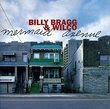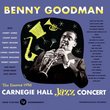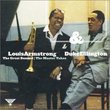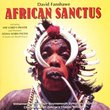| All Artists: William Parker Title: Peach Orchard Members Wishing: 2 Total Copies: 0 Label: Aum Fidelity Original Release Date: 11/20/1998 Re-Release Date: 12/8/1998 Genres: Jazz, Pop Style: Avant Garde & Free Jazz Number of Discs: 2 SwapaCD Credits: 2 UPC: 642623301029 |
Search - William Parker :: Peach Orchard
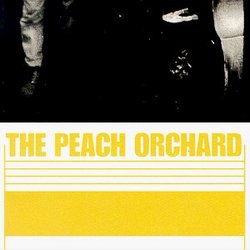 | William Parker Peach Orchard Genres: Jazz, Pop
The Peach Orchard is a generously proportioned document of a crack band in action. Its eight lengthy performances (the shortest lasts about 11 minutes, the longest about 25 minutes) were recorded in concerts at three diffe... more » |
Larger Image |
CD DetailsSynopsis
Amazon.com The Peach Orchard is a generously proportioned document of a crack band in action. Its eight lengthy performances (the shortest lasts about 11 minutes, the longest about 25 minutes) were recorded in concerts at three different venues in New York City, the quartet's home. Each of bandleader William Parker's compositions honors an event or an individual. The title track, which laments the subjugation of the Navajo nation, counterposes static figures for Parker's double bass and Cooper-Moore's piano; Rob Brown's fevered alto cries and Susie Ibarra's dynamic drumming alternately pull the monoliths apart and drive them back together. "Moholo," "Theme for Pelikan," and "Three Clay Pots" pay tribute to fellow artists and musicians. Both Brown and Cooper-Moore extrapolate from the latter's swaggering, boppish melody into giddy, breakneck forays driven by the rhythm section's geothermal pressure. There are plenty of authoritative solos, but this music isn't about strutting one's stuff; Parker conceives of it as a redemptive, consciousness-altering force, and each impassioned statement contributes to that goal. --Bill Meyer Similarly Requested CDs
|
CD ReviewsA kinetic group in excellent form 10/01/1999 (5 out of 5 stars) "I was in attendance in New York during half the recordings on these albums, and those moments were some of the most ecstatic and beautiful of my music listening life. These four musicians are among the most important improvisers alive, and this group is one of the best in the history of free jazz. The phrase "group interaction" simply does not do justice. This music is about genuine, organic flow, and, as William Parker says in the liner notes, the stories and visions of life. Also, the recording quality is superb. None of the musicians are drowned out, and none dominate the others. That is a testament also to the fact that they listen intently to each other even while in the throes of improvisation and intricate composition. The tracks are arranged so that the more dense moments are followed by the most delicate. If you want to hear honest, intense, intelligent exstensions of Ornette, Coltrane, Dolphy, and Cecil Taylor, buy this album and listen to some of the most revolutionary moments in group interaction. Those musicians are an integral part of the history, and these musiscians continue that history with their own originality and sincerity. My jazz collection would be lacking without this album. Also, Matthew Shipp, Other Dimensions in Music, David S. Ware, Charles Gayle, and Assif Tsahar provide amazing examples of New York's downtown scene. Check out Joe and Mat Maneri, too; they come out of Boston." Near-religious experince Mr. Mark | Canada | 04/14/2000 (5 out of 5 stars) "It is fitting that the first time I heard In Order to Survive it was in a church at the Guelph Jazz festival in 1999. I rank this a one of the best musical experiences I have her been party to, transcending reality itself in some respects. Each musician is so well suited to each other it is almost unnerving! There is much passionate music out there, but it seems that quite often there are one or two dominant musicians. A good example in contrast (with IOTS) is David S. Ware's quartet which features Iberra and Parker of IOTS. They have a phenomenal, big sound, but it does not match up to the sum of its parts. Ware dominates so heavily that the music does not come across as strongly as IOTS.THis CD captures the essence I think of seeing them live, not quite the same, but as near as can be expected (the recording quality is indeed amazing). A brief comment about the remarks on relating this to the Coltrane tradition. It is related in the sense that it is free jazz, but this music is, in my opinon, miles away from what coltrane had started. To me it is almost in a class of its own, likely due to the interplay I mentioned above. When i hear music that I feel is strongly connected to the JC tradition, I always feel like it sounds kind of dated in a way (David S. Ware comes to mind again). In Order To Survive is anything but dated, and I have a strong feeling that it will remain timeless music. If you like experimental music and free jazz, buy this CD today, you will not be disappointed!" Spiritually-transformational anonymousrecluse | Anytown, USA | 01/29/2001 (5 out of 5 stars) "This CD offers over two hours of awe-inspiring new jazz from composer/bassist William Parker's group In Order to Survive. The live performances combine free-pulse playing with toe-tapping vamps, marches, and folk forms in eight complex compositions that challenge (but don't confuse) the listener. A couple of hours spent listening to Cooper-Moore's manic trills and arpeggios, Rob Brown's frantically wailing alto, Susie Ibarra's relentless percussive onslaught and William Parker's inspired playing that shifts from a rapid-fire barrage of notes to plaintive, mournful arco passages might just be the spiritually-transformational experience Mr. Parker intends it to be... if you're open to that sort of thing."
|

 Track Listings (4) - Disc #1
Track Listings (4) - Disc #1